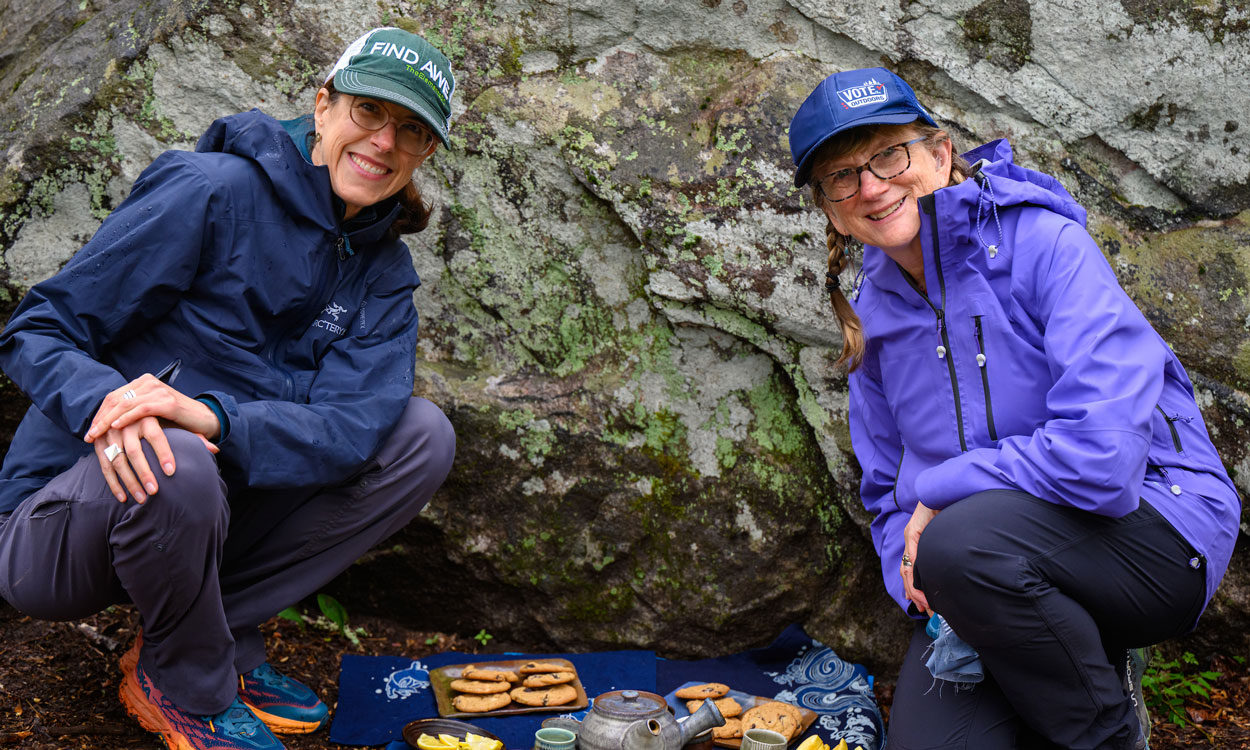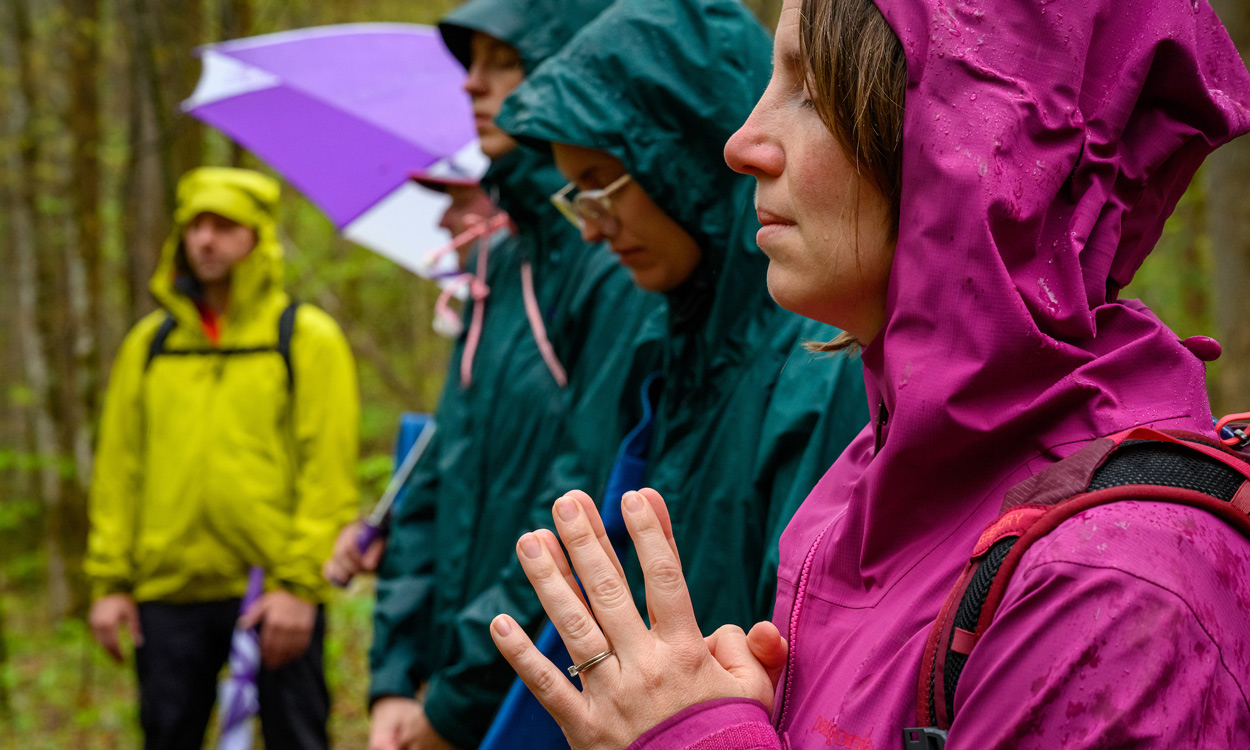Students experience the benefits of the outdoors through Nature Rx course

Florence Williams left) and Debby Singleton during the closing tea ceremony to signify the ending of the forest bathing session.
By Julia Duvall
When you hear the phrase “forest bathing” many words may come to mind when trying to picture exactly what it is, but health care probably isn’t one of them.
“Back in the 1980s, the Japanese government noticed that more and more people were developing chronic illnesses like high blood pressure and diabetes,” Debby Singleton, retired professor in the Parks and Recreation Management program at Western Carolina University said. “When Japan transitioned from an agricultural society to more of a tech-focused one, they saw the change in the health of their citizens, so they looked into research regarding improvement in overall health with more time spent outdoors. They started implementing outside time as part of their health care system to see if it would help improve the well-being of the Japanese people.
The Japanese term for forest bathing is shinrin-yoku, which was coined by Tomohide Akiyama, director of the Japanese Forestry Agency in 1982.

Forest bathing has been shown to decrease blood pressure, be beneficial to a person’s parasympathetic nervous system and protection from infections. It is also known to help combat anxiety, depression and lower stress.
“Forest bathing can be anything from sitting outside and taking in the sound, smells, tastes and sights of nature to quite literally sitting in a forest and “bathe” in the chemicals released by the trees and enjoy the benefits to your nervous and immune system,” Singleton said.
Singleton, who retired from WCU in the spring of 2022, has been serving as an adjunct professor in the Parks and Recreation Management program teaching the course that implements forest bathing, called Nature Rx.
“I created this course based on the experience I had working with students who needed ways to interact with nature that was not a skills-based activity,” Singleton said. “We were seeing students with chronic illnesses, anxiety and depression and I wanted to see what we could do to help them manage these things and use nature as wellness tool for them.”
Singleton came across the book “The Nature Fix” by Florence Williams and wanted to use the book as the textbook for the course.

“I reached out to Florence and she was thrilled at the idea of the book being used in class,” Singleton said. “Pre-pandemic Florence zoomed into the class several times and when the pandemic hit and everything had to be moved online, we still had those zoom sessions and Florence would check-in with the students to see how they were doing.”
Through a grant from the campus student committee, Singelton worked with Jeremiah Haas and students from WCU’s Base Camp Cullowhee program to bring Florence to campus for a talk and forest bathing event in the spring of 2023.
Singelton, Williams and students went to Pinnacle Park in Sylva to do the forest bathing activity which consisted of invitations to sit with nature, find textured objects to share with the group and to have quiet time amongst the trees.
Once complete, it is tradition to have a tea ceremony to thank the guides group members and the forest for the quiet time to reflect and take in all that nature has to offer.

